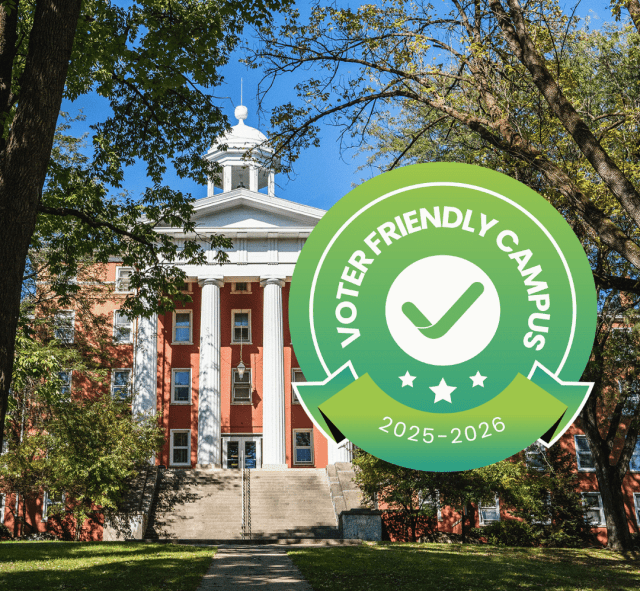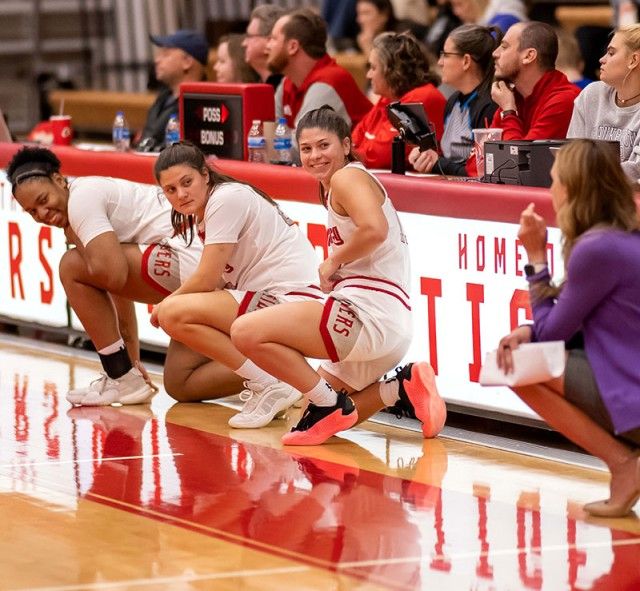Associate Professor of English and Writing Center Director Mike Mattison will be a featured scholar at the 2018 Naylor Symposium on Undergraduate Research in Writing Studies, Sept. 27-29, at York College of Pennsylvania.
Now in its fifth year, the workshop typically provides undergraduate researchers in the field of writing studies the opportunity to understand the questions the discipline examines, to learn some of the methodologies used to examine those questions systematically, to gain control of terminology associated with the work, and to find pathways to access previous work by scholars in the discipline. The workshop also introduces students to some of the ethical guidelines established for both research and work as literacy advocates. This year’s symposium is a little different as the gathering is for the researchers and scholars, rather than undergraduates.
In his role as a featured scholar at the 2018 Naylor Symposium, Mattison will help plan and facilitate a working group dedicated to exploring eight motifs and setting an agenda for related future work. Featured scholars will also contribute to The Naylor Report, providing a 1,500-to-2,000-word response to the chapters that lead scholars author.
“This is a relatively new undertaking for Naylor, and the conference itself is rather young,” Mattison said. “But, the folks involved are some of the heaviest hitters in the field of undergraduate research, especially in issues of writing. Many of them have been involved with Young Scholars in Writing - a solid journal, and I'm hopeful that some of our students can begin to write with an eye toward publication there. We use some of the essays in this journal in the writing center class already. Mainly, I think this opportunity aligns with the priority that Wittenberg places on undergraduate research, and this conference can be a chance to highlight some of the things we do, such as the First Year Research Awards (FYRA) program, and learn new ways to help our students develop as researchers, writers, and thinkers.”
Mattison will spend four days in a working group, focusing on the motif of "institutional support.” His group will discuss what institutions can/must do to provide the resources necessary to move this work forward, how to actively transform the institutions with which they are affiliated, and how this work can be fostered in brick-and- mortar locations, as well as on virtual campuses, in national professional organizations, through community groups, etc., and in ways that are hospitable to, and actively support, undergraduate research activities.
“I think part of the request for me to do it came from my application and description of mentorship,” Mattison said. “I mentioned Wittenberg’s new FYRA program, and I think that might have connected with them and the idea of institutional support. How do we work mentoring into the campus community and what resources can we allocate? I think Wittenberg's program is an excellent example of one way to do that. Students step into the researcher role their first day on campus - and we have three incoming FYRA folks for the Writing Center this semester.”
The FYRA program, started by Jeremiah Williams, associate professor of physics, and Nancy McHugh, professor and chair of philosophy, was designed to match outstanding students with Wittenberg’s award-winning faculty. The program provides stellar opportunities for high-achieving students to pursue an exciting research project with a faculty member during their first year at Wittenberg. Mattison will work with three first-year students this year: Courtney Buck of Delaware, Ohio; Emily Nolan of Hilliard, Ohio; and Jamie Spallino of Rocky River, Ohio.
By attending such workshops as the Naylor Symposium, students are able to become part of a local network of undergraduate students from varying institutions, including experienced and new undergraduate researchers guided by mentor faculty members. They can attend one-on-one conferences with writing researchers in the fields of composition, rhetoric, or writing center studies to discuss research ideas, goals, and methodologies, assess the quality of research, design a research question, and learn and practice qualitative and quantitative research methods.
Mattison and Madison Krstich, class of 2019 from Johnstown, Ohio, and a student advisor at the Writing Center, attended the workshop for the first time last year.
“After I found the call for proposals, I encouraged her to apply, and I applied to be a mentor,” said Mattison, a recent nominee for this year’s International Writing Center’s Association (IWCA) Outstanding Article Award for his piece titled “Heading East, Leaving North: Thoughts from the 2016 IWCA Conference, for which he will be recognized during the opening reception and awards ceremony for IWCA in mid-October.
“Maddie went and worked with people from around the country, including one of the authors of the textbook we use in the Writing Center, Melissa Ianetta. I had a chance to work with students from Miami of Ohio and Texas A&M, and I gave a small workshop,” he said.
Looking ahead, Mattison knows that this next experience will be just as powerful.
“When students do attend, they have a wonderful chance to spend several days focused on a project, interacting with skilled and knowledgeable mentors from across the country,” Mattison said. “Last year was such a boost for Madison and me -- there really is a great energy involved in this. It's inspiring.”






